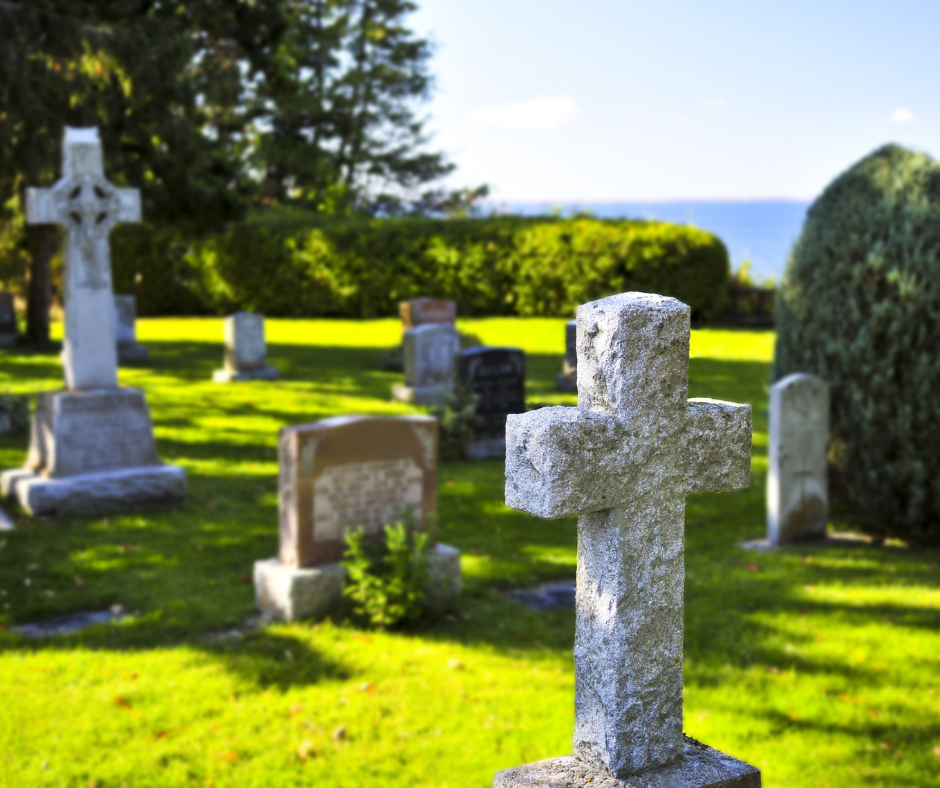
1 Thessalonians 4:13-18
The burial service had just ended, and after saying my goodbyes to the family of the deceased, I made my way through the gravestones to where my car was parked. Someone called out my name and I turned to see the daughter of the man who I had eulogized minutes before. “Pastor” she said, “have you got a minute?” She shared her concern that she would never see her father again. Not in the obvious way, of his not being literally just a car ride or a phone call away. But in the sense of never being reunited with him in the life to come. Her doubts about his eternal destiny stemmed from the fact that, in her words, “He never accepted Christ as his Savior.” The church she called home taught that the offer of salvation had an expiration date. If not claimed by a person before the moment of physical death, the offer was off the table. What followed was a conversation where I confessed to not having any concrete proof to settle her doubts, but encouraged her to trust in what her faith told her about God’s merciful nature above all else.
It sounds like Paul was having a similar sort of conversation with the Christians in Thessalonica, in the passage we just read. The overall tone of Paul’s first letter to the Thessalonians is one of great appreciation for their faithfulness. However, there was also a growing dilemma among them. We know that the earliest Christians believed that Jesus’ second coming would happen sooner than later. Faith in Jesus’ return offered hope to many believers who struggled in a world that was sometimes suspicious and hostile to their religion. As time wore on though, with no sign of Jesus’ return, even the stalwart church of Thessalonica felt their faith being tested. What was especially alarming for them was the question of whether their companions who died would not be included in the resurrection of the dead upon Jesus’ return. It was to that area of concern that Paul was speaking when he wrote these words: “We do not want you to be uninformed brothers and sisters, about those who have died, so that you may not grieve as others do who have no hope.”
Thankfully, Paul’s message of comfort has been preserved for countless generations who have needed to hear it. Because this was not a concern that was peculiar in place or time to the church in Thessalonica. The fact that it emerges in several places among later writings from the New Testament, points to this being a perennial issue for Christians. In Paul’s letter to the Ephesians mention is made of Jesus—in between his crucifixion and resurrection–descending into the realm of the dead, to bring gifts to those who were there. And in 1 Peter it speaks of the gospel being proclaimed “even to the dead, so that, though they had been judged in the flesh as everyone is judged, they might live in the spirit as God does.” There are other New Testament passages along these lines, as well. Later, when the Apostle’s Creed was created to express a summary of Christian belief, it contained a reference to Jesus bringing the Good News to those who had perished. None of this replaces the necessity of human willingness to accept the gift of grace offered through Jesus. But, on and on, the message has been passed down, that there is no boundary—including death—that can stand in the way of redemption through Jesus. Right down to that conversation in a graveyard with a grieving daughter who had lost hope in the odds of her father’s chance for salvation.
The All Saints Sunday tradition is to remember those who have departed this life ahead of us. Depending on where we are in our journey of grieving, today may also be a time to anticipate being reunited with them in God’s time. That is the hope that is available to us, even amid our questions and doubts. Therefore, as Paul recommended to the Thessalonians, let us encourage one another with these words of hope.
Copyright 2020 Raymond Medeiros
Preached November 1, 2020 (All Saints Day)